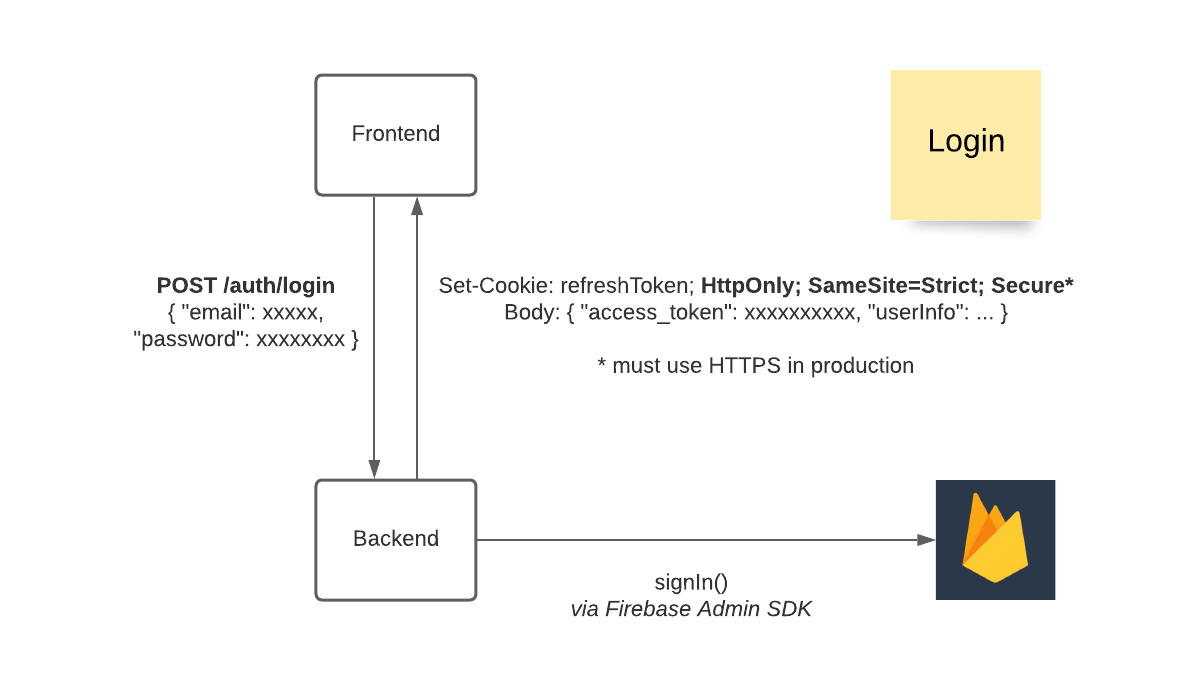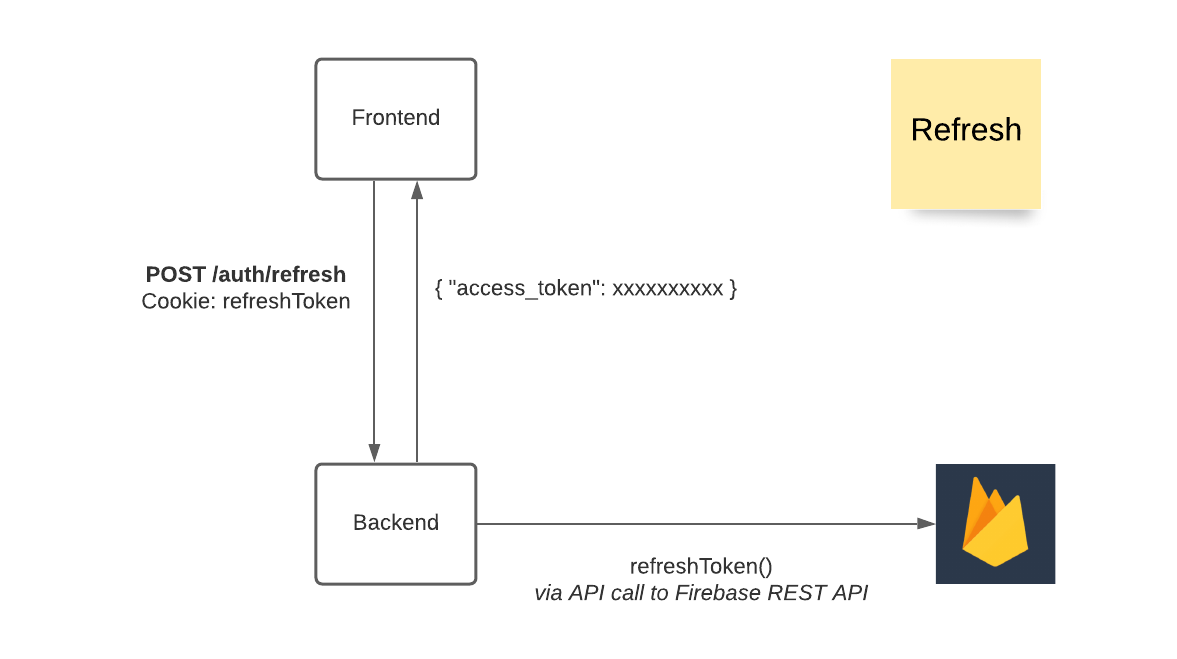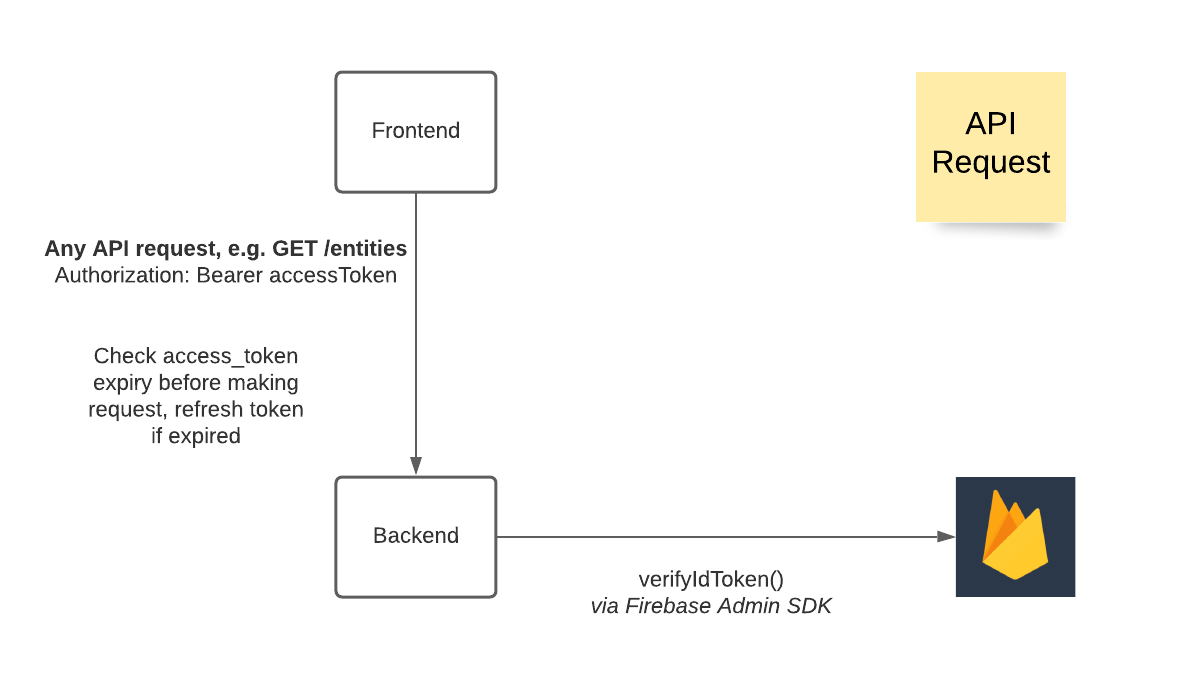User Auth
Starter Code comes with UserService and AuthService pre-built for your use if you opted into user auth through the CLI. UserService provides basic CRUD methods for you app’s users, and AuthService provides methods to manage tokens for authentication and handling password reset. The AuthService implementation is backed by Firebase.
Setting up
- Create a new Firebase project using the console if you do not have one
- Generate a Firebase service account private key (note: you must be an “Owner” of your project)
- Go to your project in the Firebase console
- “Project settings” > “Service accounts” > “Generate private key”
- A file will be downloaded, copy it into
/backend/typescript/or/backend/python/and rename itfirebaseServiceAccount.json
- Add these lines to the root
.envfile in the repoGOOGLE_APPLICATION_CREDENTIALS=firebaseServiceAccount.json # Retrieve the API key from the Firebase console FIREBASE_WEB_API_KEY=<your-web-api-key> FIREBASE_REQUEST_URI=http://localhost
Please see Google Sign-in for additional Google OAuth setup instructions.
Basic Auth Flow
In contrast with many other UW Blueprint projects that use both the Firebase Client library and Admin SDK to handle authentication, we use the Firebase Admin SDK server-side only. This is done to decouple the frontend and backend and ensure that new AuthService implementations can easily be substituted. The login, refresh, and API request flows when using auth is illustrated below. While we use REST endpoints in these diagrams, note that the GraphQL flows are identical.
 |
|---|
| Login Flow |
 |
|---|
| Refresh Flow |
 |
|---|
| API Request Flow |